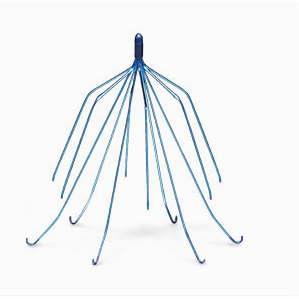Hip and knee infection on the rise. Some patients who develop an infection after undergoing hip or knee replacement surgery have filed lawsuits against the makers of a device named Bair Hugger. The device is used in a number of hip and knee replacement surgery and may be linked to some serious side effects.
The Bair Hugger device is usually used without the patients knowledge. The device is a warming blanket used to help maintain a patient’s body temperature during surgery. Doctors utilize this device to maintain a patient’s body temperature because studies have shown that maintaining proper body temperature can reduce bleeding, speed up recovery time, and provide other benefits.
Surgical warming blankets, such as Bair Hugger, work like a forced-air heater, pushing warm air through a hose into a blanket covering a patient. The device releases warm air over a patient’s body, but also releases air under the surgical table. The air released under the table has the potential to cause bacteria and germs to spread throughout the room, landing on a patient’s surgical site. This may cause an infection in the patient’s knee or hip, such as sepsis and Methicillin-resistant Staphylococcus aureus (MRSA). Unfortunately, these infections are very difficult to treat when they occur deep in a patient’s joint.
 Dallas Fort Worth Injury Lawyer Blog
Dallas Fort Worth Injury Lawyer Blog


 Links between laparoscopic power morcellators and cancer have trigger lawsuits throughout the United States just as the FDA issues a recall on three Johnson and Johnson devices.
Links between laparoscopic power morcellators and cancer have trigger lawsuits throughout the United States just as the FDA issues a recall on three Johnson and Johnson devices. While some in the medical community continue to debate whether or not Talcum Powder, also known as Baby Powder, may cause ovarian cancer, two recent lawsuits suggest it does cause ovarian cancer.
While some in the medical community continue to debate whether or not Talcum Powder, also known as Baby Powder, may cause ovarian cancer, two recent lawsuits suggest it does cause ovarian cancer. Recent medical studies have linked inferior vena cava filters (IVC filters) to serious risks when the filter remains implanted in a person’s body for longer periods that what is recommended. Complications from prolong use of IVC filters have led to several lawsuits recently across the United States.
Recent medical studies have linked inferior vena cava filters (IVC filters) to serious risks when the filter remains implanted in a person’s body for longer periods that what is recommended. Complications from prolong use of IVC filters have led to several lawsuits recently across the United States.